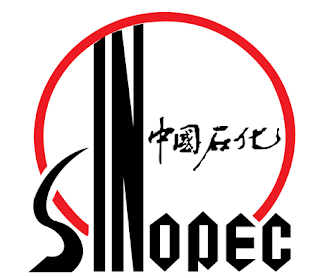Bad news comes from the Indonesian energy sector. During the Corona pandemic (Covid-19), two foreign investors in the oil, gas, and electricity sectors, Shell and Mitsui, planned to flee their project in Indonesia.
Royal Dutch Shell Plc (Shell) intends to leave the Masela Block Abadi Gas Project, Maluku. SKK Migas confirmed, Shell wanted to release 35% of its participation in the block, influenced by Covid-19.
Besides Shell, another foreign investor who wants to escape is Japan's, Mitsui Corp. Mitsui plans to leave the Paiton power plant project, East Java. Mitsui holds a 45.5% stake in the 2,045 megawatts (MW) plant.
The energy business is indeed experiencing a decline. See, the International Energy Agency (IEA) projects total global energy investment this year to fall to US $ 400 billion, down 20% year-on-year (YoY). Earlier this year, energy investment had grown by 2%.
Indonesia was affected. Economist Indef Bhima Yudhistira Adhinegara rate, the reason investors want to get out of Indonesia Iantaran see regulations that are not yet fully friendly and often change.
"They have invested long-term, but there is uncertainty regarding policies and regulations," he said.
Indonesia's competitiveness index in the IMD World Competitiveness Ranking 2020 dropped from rank 32 to 40. Therefore, Bhima said, there needs to be an improvement in the investment climate in the country.
The Masela Block project is indeed on a winding road. The process of negotiating, developing, and determining the investment commitment of the Masela Block has been very difficult, namely for more than two decades since 1998.
In July last year, the government approved the proposal of Inpex Corporation, the manager of which holds a 65% stake in the Masela Block's participation. The block's investment value is around the US $ 19.8 billion.
Until now there are no prospective buyers of liquefied natural gas (LNG) that will later be produced from the Masela Block. On the other hand, the development of onshore refineries has not yet begun.
Indonesian Petroleum Asociation (IPA) Executive Director Marjolijn Wajong assessed that depressed oil prices also contributed to the decline in investment. Then the most likely thing to do is respect the contracts that have been made with the investors.
"If you want to change the contract, the government should discuss it first with investors," he said.
Oil and Gas Practitioners and Observers Tumbur Parlindungan hopes that the government will move quickly to improve the country's oil and gas investment climate so that investors will not be shunned after the Covid-19 pandemic.
"The way to provide investment certainty is through safeguarding the sanctity of contracts or contract sanctity as well as improving overlapping rules," he said.
In the electricity sector, the Executive Director of the Institute for Essential Services Reform (IESR) Fabby Tumiwa believes that Mitsui's plan to leave the Paiton power plant signals that investment in fossil fuel-based plants is no longer attractive.
Mitsui's intention to leave could set a precedent in the electricity sector. Later, other investors will prepare similar options to mitigate investment risks in thermal plants. Therefore, Fabby called on the all-out government to encourage investment in clean energy and energy efficiency.
"The government must have a policy framework that provides certainty," he said.
Kontan, Page-1, Tuesday, July 7, 2020















































